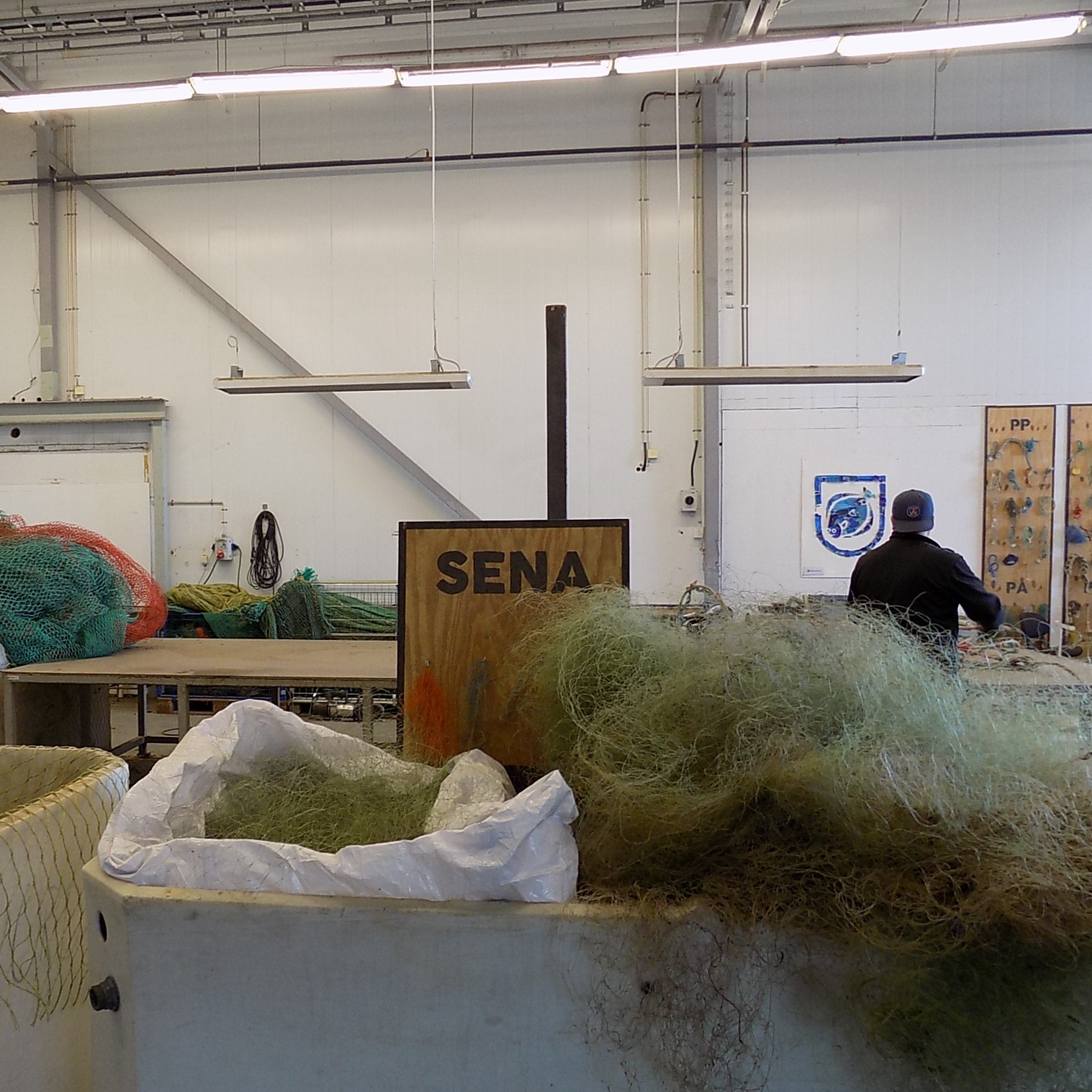Supporting recycling of EOL fishing gear
Single-use plastics and fishing gear are the most significant sources of marine plastic litter also in Europe. Many single-use plastic (SUP) items have been banned and replaced with items made from more sustainable materials, but a similar approach is not yet possible with plastic containing fishing gear. Therefore, a different kind of approach has to be taken...

About CIRCNETS
Plastic is durable, it can take a lot of beating, it is affordable. Unfortunately, the good qualities of this material in fishing gear are also its vices from the environmental point of view. If a fishing gear breaks up while in use and becomes a ghost gear, a fishing gear without a master, then the it can do a lot of damage. Catching fish and other animals, decomposing very slowly and spreading microplastics, the ADLFGs - abandoned, derelict and lost fishing gear are a real nuisance for marine environment. Since we cannot replace the plastics in the fishing gear with other materials, this problem has to be addressed in another way. EU has introduced the SUP directive, which addresses besides single use products also fishing gear, the two main sources of marine plastic pollution. SUP directive requires that extended producer responsibility (EPR) is extended to cover also fishing gear. This means that producers and importers of fishing gear have to organise and fund separate collection of EOL fishing gear. When the net, fishing rod or any other fishing gear, which includes plastics, is not useful for its owner anymore and becomes thrash, the owner can return this to a collection point free of charge. The extended producer organisation, meaning the producers and importers of fishing gear, have set up this collection system, which will provide and easy way for fishers - both professional and spare-time ones - to get rid of their EOL fishing gear. By using the collection system the fishing gear will not end up in nature. Long distances and lack of critical mass are key challenges for organising waste management in many parts of the northern, peripheral and sparsely populated areas of Europe. This is highlighted even more in this particular case. Finding out, how collection can be organised regionally in a most efficient and economic way, which also adheres to the "do no significant harm" principle, requires solutions to be looked at from other regions, which have already taken steps towards this. However, the collection of fishing gear opens up a possibility to proceed towards a more circular economy. CIRCNETS will find out also, how the collected materials can be recycled.
